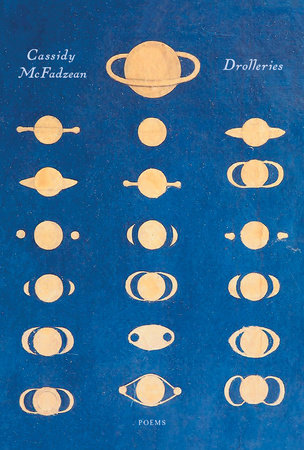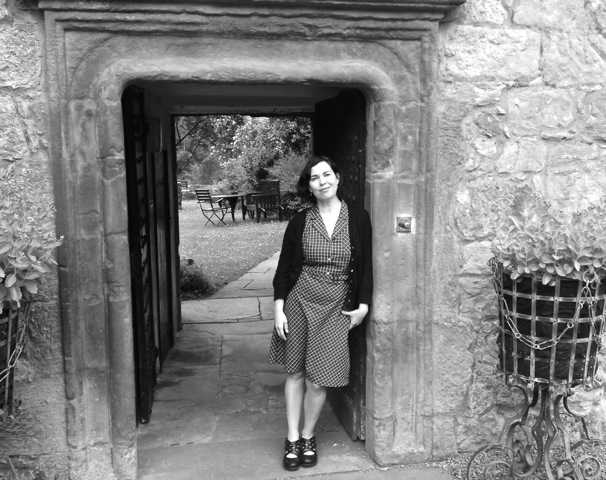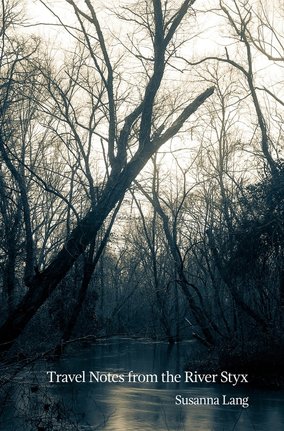A Prague Spring, Before & After. Michael Salcman. Photographs by Lynn Silverman. Evening Street Press. Sacramento, California. 2016.
2015 Winner of the Sinclair Poetry Prize

A Prague Spring, Before & After will be, for certain people, a codex. This is history rendered as sorrow and spoken clearly.
Today's book of poetry has a slightly warped take on Michael Salcman's epic tale. Today's book of poetry had the pleasure of living in Czechoslovakia prior to it's separation into two states, The Czech Republic and Slovakia, in 1993. In the late summer of 1990 Today's book of poetry moved to the northern Czechoslovakian town Jablonec-nad-Nisou (Apple tree on the Nisou River) to open a non-profit English as a second language school. Today's book of poetry frequented Praha (Prague) every chance we got.
At that point in time Praha was a magical city, whether I was hanging out with Ania Jakubowski and getting Halloween costumes from the national theatre or bar hopping with Martina and her crazy friends. This was immediately following Vaclav Havel's Velvet Revolution.
As a result Today's book of poetry can't help but be enthralled by Michael Salcman's poetry. Lynn Silverman's photographs are haunting and sombre and bring back Praha to my mind with such clarity that I can feel it's cobbled streets beneath my feet, smell the yellow coal, and the taste of pivo (beer).
9, (The Pinkas Synagogue)
When you knock on the door of strangers,
there are three possibilities: they will send you away,
they will take you in, they will report you.
I didn't know where to find their names,
the farmer and his wife, the two daughters,
the righteous gentiles my cousin Arnold had the inscribe
on the walls of the Pinkas Synagogue,
close by the names of those they couldn't save.
Then a flood came and wiped the walls clean
for a bit as if God too wished to erase them.
Outside this wall and the old Jewish cemetery,
the Czechs have built a Museum of Decorative Arts,
the stacked stones and red letter like shards
of Bohemian glass, cutting the soul. Like knives.
👊👊👊
Prague/Praha was Today's book of poetry's first exposure to Eastern Europe and it was intense. Since then we have been in Russia, the Ukraine, Slovenia, Hungary and Croatia. Today's book of poetry has to admit we have a big soft spot, we see that part of the world with tender and longing eyes. Salcman's poems create flashes that immediately left me in situ.
A Prague Spring, Before & After includes poems anchored in America, poems that get under the Brooklyn Bridge and Today's book of poetry felt welcomed. But the reader is drawn to Prague and it's history, again and again, the bloody and gruesome caravan from then to now.
An American Refugee on Vacation in Prague
Summer solstice in the Stare Mesto of Prague—
everyone as usual looking for Kafka.
Even the 14th Count of Lobkovicz,
a cultured soul who shows me
the 400 year old mummified arm in the Church of St. James,
who speaks of the Master Theodoric
with the voice of a true connoisseur, to whom
locating Tycho Brahe's tomb
in Our Lady Before Tyn is the merest child's play,
even if he can't find Kafka.
Reported sightings at No.2 and No.3 Celetna
go unconfirmed; the cafe
at The House of the Black Madonna is closed.
Waiting for more reliable information
I smoke three Havana cigars:
a Romeo and Juliet, a Cohiba and a Partages.
I do not manage to visit more than two houses in which
Kafka wrote or worked.
I do manage to visit the Castle that gave him nightmares.
I watch the clock on the Jewish Town Hall tower
run the wrong way round
and the Czechs lean backwards going down
the steep escalator in Republiky's Metro.
I do not twist my ankle on the cobbles in Celetna Street;
I do have dinner with two actors in a barrel-vaulted restaurant
two stories below the Gothic ground.
I make love to one woman and to this golden city.
I deserve nothing of this but the sound of bells.
👊👊👊
Our morning reading started with a long chat about Today's book of poetry's experiences living in Vaclav Havel's Czechoslovakia. Then Kathryn, our Jr. Editor, took the helm as we gave A Prague Spring, Before & After voice. Kafka makes numerous appearances so Today's book of poetry shared our very common story of sitting on Kafka's steps under the shadow of the Hradcany Castle and drinking our sad pivo with delirious glee.
A Prague Spring, Before & After reminds Today's book of poetry of how quickly Praha turned luminescent, how quickly it broke our heart.
Spending time in Praha is probably one of the best things you can do, Michael Salcman makes it real, tells it true.
PRAGUE SUITE
1.
Each summer day, thousands of tourists stand and watch
the skeleton on the old astronomical clock
rattle his hour glass in mortal warning
while an unbelieving Moor near-by shakes his carved head
and the clock on the Jewish Town Hall tower runs backward
to go forth; the Stone Bell never rings.
What city tells time like Prague?
In perfect stasis it measures its minutes in faggots and flames:
Jan Hus will burn forever in the Old Town Square, Kafka
prospectively smells Jan Palach afire with gas, and Mozart sings
in every street, his Stone Guest a perfect Golem.
It's as if God had banished worms and maggots with a spell,
the city as heavenly banquet. At Vladislav's Powder Gate,
where Gothic leans on Art Nouveau, love runs long, renews.
👊👊👊
A Prague Spring, Before & After proves that time is elastic. Mr. Salcman has cooked up a tremendous borscht that is both love story and requiem.
Salcman does not shy away from our dark history or Prague's.

Michael Salcman
ABOUT THE AUTHOR
An internationally known neurosurgeon who is also a poet and art critic, Michael Salcman was born in Pilsen Czechoslovakia in 1946, the son of Holocaust survivors and came to the United States in 1949. After finishing the Six-Year Combined Program in Liberal Arts and Medical Education at Boston University, he was a Fellow in Neurophysiology at the National Institutes of Health and trained in neurosurgery at Columbia University’s Neurological Institute in New York Former chairman of neurosurgery at the University of Maryland School of Medicine, his early medical career was profiled by Jon Franklin and Alan Doelp in Not Quite A Miracle (Doubleday, 1983). Salcman is the author of almost 200 scientific and medical articles as well as six textbooks; his medical books have been translated into Spanish, German, Portuguese and Chinese. He was named a Distinguished Alumnus of Boston University's medical school and of Columbia University's neurological institute. Former president of the Congress of Neurological Surgeons, the Contemporary Museum in Baltimore and the CityLit Project, Salcman lectures widely on art and the brain and on the brain and creativity. He currently serves as Special Lecturer in the Osher Institute at Towson University.His first published poems appeared in the 1970s. Recent poems appear in Alaska Quarterly Review, Barrow Street, Harvard Review, Hopkins Review, The Hudson Review, New Letters, Notre Dame Review, Ontario Review, Poet Lore, and Raritan. His poems have been heard on NPR's "All Things Considered" and he appears in Euphoria, an award-winning documentary on the brain and creativity. His poems have received six nominations for a Pushcart Prize, one for a Best of The Web Award, and have appeared on Poetry Daily, Verse Daily and in several anthologies. He has given readings at the Library of Congress, The National Academy of Sciences, The Academy of Medicine in Atlanta, the Writers Center in Bethesda, The Pratt Library in Baltimore, and Columbia University’s medical school. He is a poetry editor at The Baltimore Review. Dr. Salcman is the author of four chapbooks, the most recent of which is Stones In Our Pockets (Parallel Press, University of Wisconsin, 2007), and two previous collections, The Clock Made of Confetti (Orchises Press, 2007), nominated for The Poet’s Prize in 2009, and The Enemy of Good Is Better (Orchises, 2011). His widely-praised anthology of classic and contemporary poems on doctors, patients, illness and recovery, Poetry in Medicine appeared in 2015 (Persea Books).
BLURB
A Prague Spring is a beautiful blend of the lyric imagination with historical and autobiographical facts. In this book, ignorance, cruelty, and murder lose. Art, and the truth, wins.
—Thomas Lux
Michael Salcman
reads "The Clock Made of Confetti"
Video:
Program in Narrative Medicine at Columbia University
746
DISCLAIMERS
Poems cited here are assumed to be under copyright by the poet and/or publisher. They are shown here for publicity and review purposes. For any other kind of re-use of these poems, please contact the listed publishers for permission.
We here at TBOP are technically deficient and rely on our bashful Milo to fix everything. We received notice from Google that we were using "cookies"
and that for our readers in Europe there had to be notification of the use of those "cookies. Please be aware that TBOP may employ the use of some "cookies" (whatever they are) and you should take that into consideration







